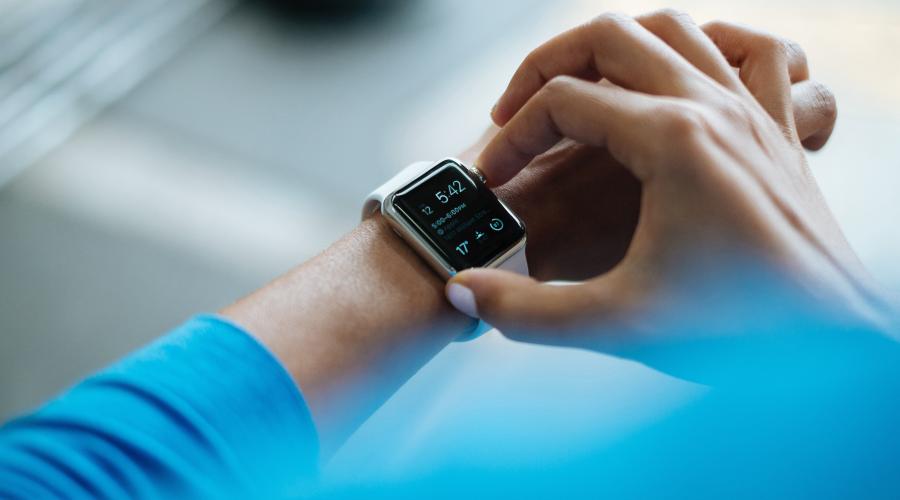
Summer is coming to a close, which, for most people, means a change in routine. With fall just around the corner, it’s a great time to revamp your healthy habits and maybe even start some new ones. In this article, we’re taking a look at some of the latest gadgets that could help you live a healthier lifestyle.
1.If You Want to Exercise More
Apple Watches®, Fitbits®, and other wearable fitness trackers are all over the place. Perfect for people who want to keep track of their health, these devices can help remind you to stay active even as those colder fall nights approach. Not only do they measure steps, but certain models also track sleep patterns, stairs climbed, calories burned, and heart rate, all of which you can monitor via a smartphone app. You can even set daily activity goals and get notified when you’ve been inactive for too long.
The downside to fitness trackers? In a 2016 study, researchers discovered that participants who wore trackers for 18 months actually lost less weight than people who didn't. One possible reason is that people may feel that the mere act of wearing a fitness tracker counts as being healthy, rather than actually doing healthy things like exercising and eating right. Keep this in mind if you get one and aim to defy the odds!
2. If You Forget to Take Your Medicine
Do you have trouble remembering to take your medicine, no matter how hard you try? You’re not alone. In the US, a whopping 3.8 billion prescriptions are written each year, but of those prescriptions, 50% are taken incorrectly or not at all. And with schedules changing for the fall season, remembering to take your pills at the right time can become even more challenging!
Enter smart pill bottles. These revolutionary bottles can tell when a cap's been twisted. If you haven’t opened the bottle to take your latest dose, it'll sound an alarm and send a text to your phone.
The pill bottle may be worth trying if you want a new way to remember to take your medication. However, it's not a cure-all. A survey of 10,000 patients found that most people skip pills for reasons like cost and unpleasant side effects, rather than forgetfulness.
3. If You Want a Better Night’s Sleep
It’s only natural that as we age, we have more trouble falling asleep and staying asleep. Add in that the sun is setting earlier and rising later, and you may have even more trouble sticking to your routine.
There are dozens of sleep apps on the market to address sleeping problems. These apps claim to track your sleep time, sleep length, body movements, and sleep stages. Sleep trackers like this can help remind you to make sleep a priority, but their accuracy may be suspect. As sleep specialist Paul Gringas explains, “The only way to tell what stages of sleep a person is in at any moment is by attaching electrodes to their heads to measure their EEG.”
If a tracker isn’t right for you, plenty of gadgets are available to help you change your bedtime habits. Studies have shown that blue light can be harmful to your sleep because it blocks melatonin, the chemical that regulates your circadian rhythm. Most smartphones and tablets offer settings that lock you out of your device during certain hours so you have some time to unwind device-free. Other lower-tech gadgets, like white noise makers, can soothe you to sleep, especially if you’re particularly sensitive to noises.
4. If You Need to Drink More Water
Many of us fail to get the recommended 8 glasses of water a day. Smart water bottles seek to change that. These bottles allow you to input your water goals, pace your consumption, and track your hydration stats. Typically, the bottles range in price from $20-$90.
Are they a worthy investment? If they motivate you to up your water intake, they can be. As WebMD reports, while water isn't a magic bullet, it's still essential to your health
5. If You Want to Monitor Your Blood Pressure More Often
If you have high blood pressure, you’re probably used to frequent doctor’s visits. But if going to the doctor becomes inconvenient, or if you want to check your blood pressure more often, going to your closest clinic isn’t your only option.
Nowadays, there’s a variety of at-home blood pressure devices to help you keep an eye on your health. These gadgets range from $50-$100, but be aware: a higher price tag doesn’t necessarily guarantee higher quality. When it comes to choosing a specific device, Harvard doctors have chimed in with their recommendations, but check with your healthcare provider to see if there’s anything else you should keep in mind. Then, ask your insurance company if they can cover all or part of the cost.
Once you’ve purchased the machine that works for you, make sure you follow the correct procedure so you get an accurate reading!












